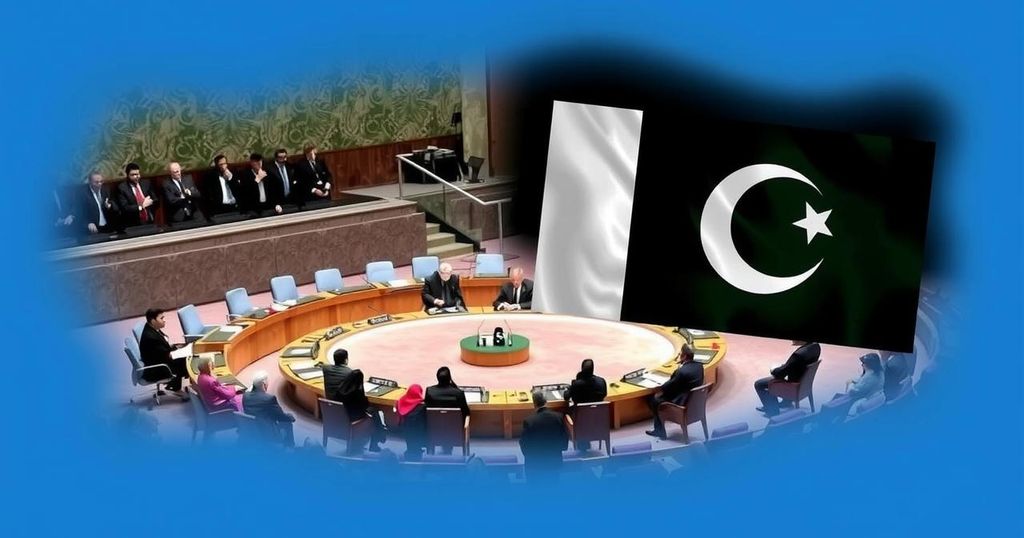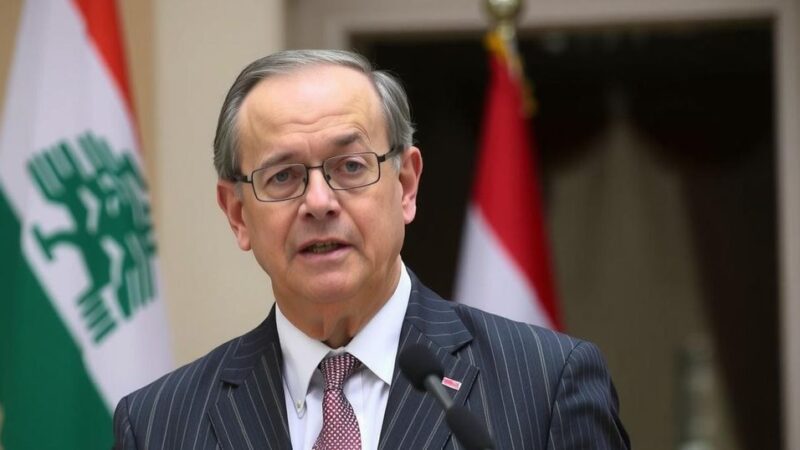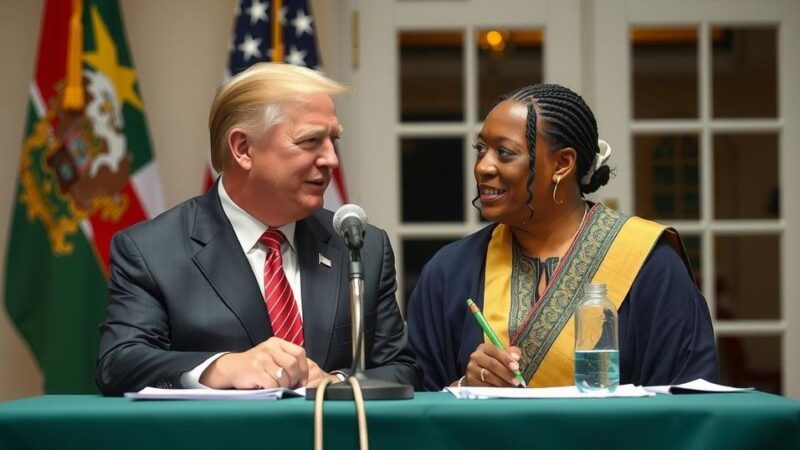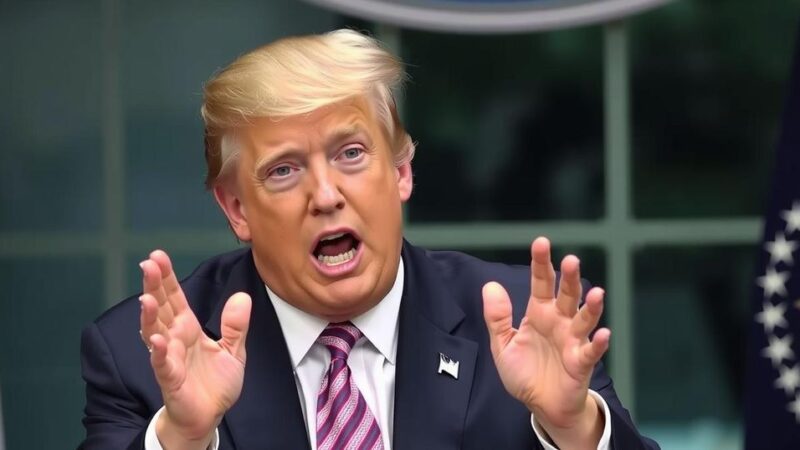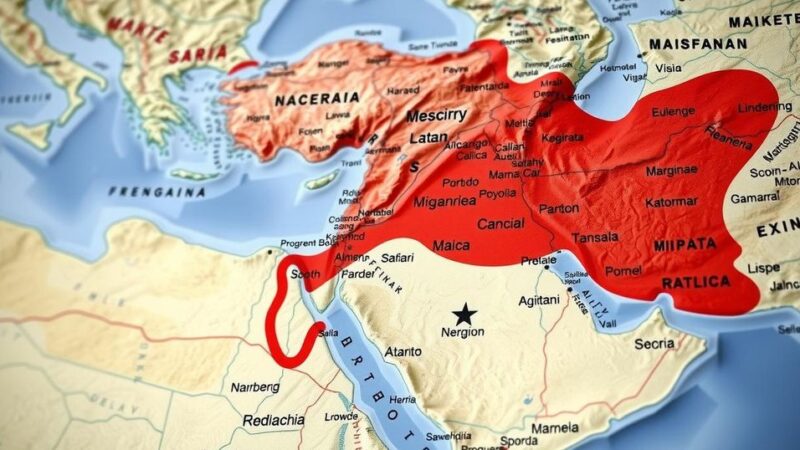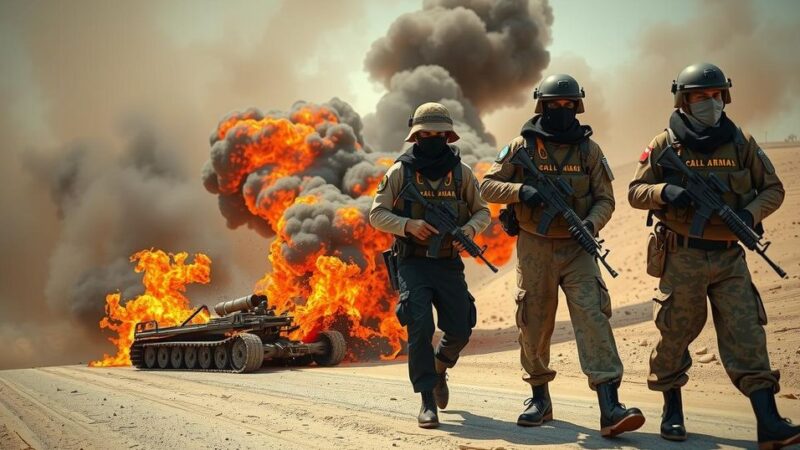Pakistan has begun a two-year term in the UN Security Council, its eighth time serving in this capacity. While Pakistani officials claim this is an opportunity to combat terrorism and contribute positively, there are widespread concerns about its historical use of terrorism as state policy. India remains particularly wary of how Pakistan may leverage its new position, especially regarding the Kashmir issue and its relationships with militant groups.
On January 1, 2025, Pakistan commenced a two-year term as a temporary member of the United Nations Security Council (UNSC), marking its eighth participation in this esteemed body. Pakistani officials portray this opportunity as a moment for the nation to contribute to resolving pressing global issues; however, skepticism arises, particularly from India, regarding Pakistan’s historical use of terrorism in state policy and its potential to exploit its UNSC position to further its interests.
In response to Pakistan’s induction, diplomat Munir Akram committed to offering “active and constructive solutions” to global challenges, including the fight against terrorism. This assertion, while commendable, is at odds with Pakistan’s documented support for various militant groups, raising doubts about the sincerity of its intentions at the UNSC. Despite professing a desire to combat terrorism, Pakistan’s legacy of harboring and sponsoring organizations such as Lashkar-e-Taiba raises significant questions about its role on this international platform.
The UNSC, comprising 15 members, including five permanent members with veto power, empowers non-permanent members like Pakistan to participate in the voting process for resolutions. Although Pakistan’s veto capacity is absent, its influence can be significant, particularly in debates over contentious matters where strategic alliances come into play.
India, with its complex historical relations with Pakistan, remains vigilant as developments unfold. A primary concern is that Pakistan may utilize its UNSC membership to advance its agenda regarding Kashmir, an issue it has persistently raised in international discussions. Furthermore, Pakistan’s involvement in influential committees related to sanctions against terrorism raises apprehensions that it might sabotage efforts to impose measures against groups operating under its purview.
Pakistan’s position in the UNSC also offers it an opportunity to enhance its global standing, particularly among Islamic nations, by portraying itself as a vital component in the struggle against terrorism while simultaneously promoting narratives that align with its geopolitical aspirations. As such, the international community must be attentive to Pakistan’s actions in this role, discerning whether its behavior aligns with its stated commitment to counter-terrorism.
As Pakistan steps into this influential role, the global arena will serve as a critical testing ground for its intentions. While the prospect of Pakistan actively participating in the promotion of peace and security could be beneficial, its historical context poses substantial concerns regarding its sincerity. Observers, particularly within India, must remain vigilant to ascertain if Pakistan’s actions will correspond with its professed goals or if it will manipulate its UNSC membership to foster its own strategic objectives.
The recent appointment of Pakistan as a temporary member of the UNSC has sparked significant discourse regarding its implications on regional and global security. The UNSC is principally responsible for maintaining international peace, and Pakistan seeks to leverage its role to address global challenges, including terrorism. However, its history of utilizing terrorism as a tool of statecraft raises urgent concerns, particularly from neighboring countries affected by its policies. Understanding Pakistan’s past in relation to this new role is crucial to anticipating its influence on critical global security matters.
Pakistan’s assumption of a temporary position in the UNSC is a pivotal moment that requires careful examination of its historical patterns and rhetoric. The global community, particularly India, must remain vigilant in monitoring Pakistan’s actions to ensure they align with its stated commitments. With the potential for significant influence over international security decisions, the consequences of Pakistan’s participation could yield both opportunities and threats to regional and global stability.
Original Source: www.financialexpress.com

